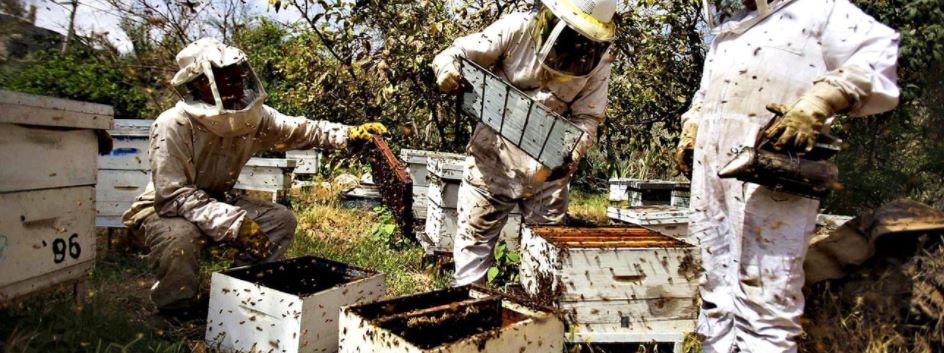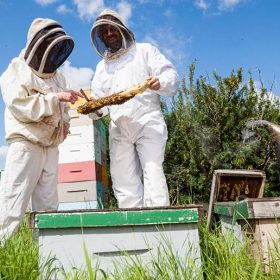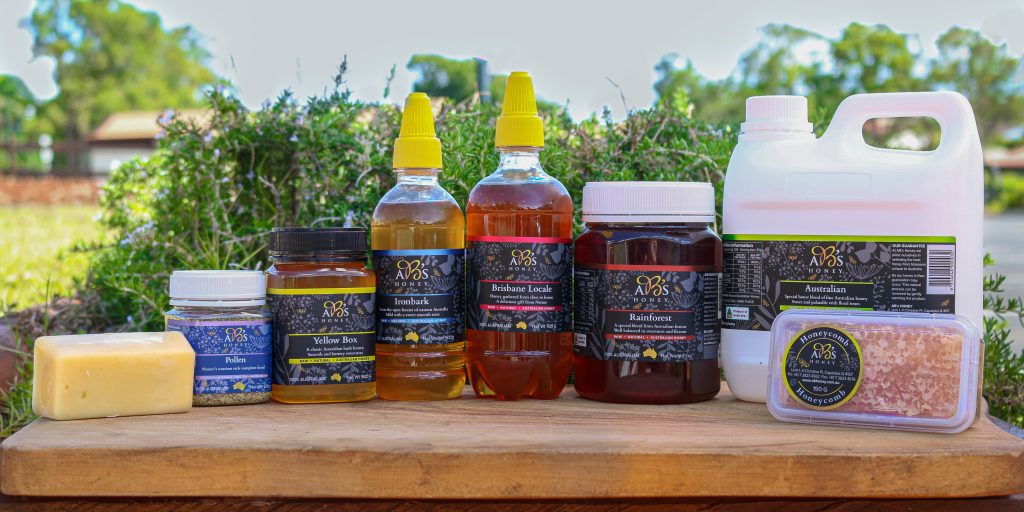The honeybee has long represented the link between handwork and prosperity, so, it is no surprise that through the hard work of Australian beekeepers, the bee industry contributes millions of dollars to the country’s economy directly through honey products like AB’s Honey. Let us take a closer look at all the demanding work in a day in the life of an Australian Beekeeper and what is required to manage hives and harvest honey.
The Australian Beekeeper’s typical workday
It is said that there is no typical or standard workday for beekeepers. The tasks vary from day to day and season to season. Most beekeepers play it by ear. The duties range from inspection of hives to harvesting honey.
However, some things are standard practice amongst beekeepers and remain constant. The necessary steps in routine included in all beekeeper’s schedules are as follows:
1. Wearing protective clothing

2. Getting out the smoker
Before opening a hive, beekeepers smoke it with a bee-smoker. The smoke also makes the busy bees get busier in feeding, since they interpret the smoke as a possible bushfire which might require them to abandon the hive. Getting busy eating the honey helps the bees remain calm, and the beekeeper can work in peace.
3. Beginning inspection

A Beekeeper will take out individual slides from the box and inspect each one for signs of pests, parasites, and the state of honey. Looking for and locating the Queen Bee is the most rewarding part of inspection by most beekeepers.
4. Conducting maintenance
Maintenance involves many different tasks ranging from fixing up the boxes to harvesting honey.
When a colony starts to outgrow its box, the beekeeper will shift them into a bigger home. This is a smooth transition since the entire bee colony will follow the queen once she has been moved. Sometimes a new Queen Bee has to be brought in to ensure that the colony continues to flourish.
5. Extraction and winter duties
Honey can be extracted using different methods, but the most commonly used is the rotating extractor through which honey falls and flows out from a valve. After that, it just needs to be strained and is ready to be poured into jars.
The bees are less active during the winter months, so most inspections involve quick checks to ensure the beehive does not lose much heat. Beekeepers generally use these months to focus on selling their product and work on their equipment.
Not all beekeepers are looking to sell the final product of the bees, though. In Australia, many beekeepers do it for the calming nature of the activity, and the fulfilment of conserving and protecting bees. In exchange, the bees pollinate their crops and gardens, which is particularly helpful due to the uncertainty of climate (drought) in Australia.
AB’s Honey
Explore more about beekeeping and get your honey jar today from AB’s Honey (Australian Beekeeper’s Honey). We deliver pure honey produced by Australian beekeepers including Australian Manuka Honey at affordable prices.
You can buy online, at Brisbane City’s Wednesday market, or at our premises in Christine Place, Capalaba, QLD.
You might also enjoy reading:

